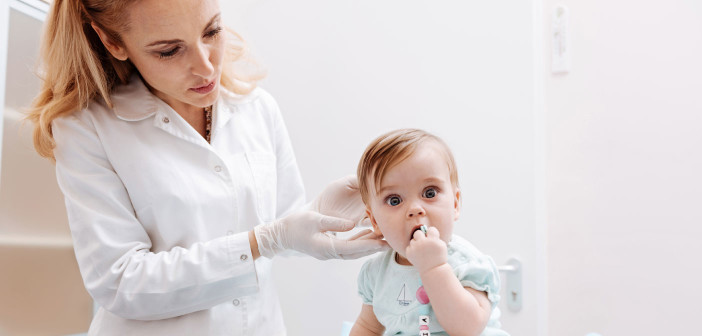We are lucky to live in this generation. There are many reasons why this is true; but from my perspective, one reason is the availability of very good childhood screening for medical conditions. One needs to look no further than the recent screening for lead levels in Flint kids, and the aftermath of the discoveries that were made.
In my practice, I routinely see kids who have failed the newborn hearing screening. The actual risk of hearing loss in babies is three out of 1,000. Here in Michigan, all newborns are screened before leaving the hospital. Of course, if a baby is born outside of the hospital (home birth), there needs to be a way to make sure they eventually get screened. In the hospital, there is a quick and painless way to check whether the inner ear is working properly. Neonatal ICU (NICU) babies are at a ten times higher risk of having impaired hearing, so their screening is even more thorough. For non-NICU babies, a simple test is done in minutes. Most kids pass, but up to ten percent of kids fail that initial screening. This, however, is not a reason to fret. The “bar” is set pretty high, because it will always be better for a child with good hearing to fail the test due to treatable issues than it would for one with impairment to pass the test and go undiagnosed for several years. In other words, it’s better to have a false positive than a false negative.
So, why would a kid with good hearing fail the hearing screening? Sometimes, it’s as simple as a noisy environment and testing conditions. Wiggling or crying kids will throw off the testing machine. Sometimes, they can be tested at another time before leaving the hospital – if not, a follow-up test will sort out the “failed” screening. Oftentimes, the failure is related to material stuck in the ear canals. These canals are very narrow to begin with and are very soft. It does not take much to plug them up and thus, throw off the test result. In this situation, the couple of weeks between a newborn’s discharge from the hospital and a follow-up exam at my office is enough time for the ears to dry out and make the screening successful.
Fluid in the ears is very common in kids. This fluid is different than the fluid in the ear canal mentioned above – now, we’re talking about fluid behind the eardrum, which can take several weeks to resolve. If it lingers for more than a few months, it can be drained by the placement of tympanostomy tubes or “ear tubes” that we hear so much about in kids. These are temporary and last for a year, or so. In that time, the child has hopefully grown to the point when their own eustachian tubes are more developed and can keep their ears fluid-free.
So, if your baby fails that first hearing test, don’t worry – it’s often due to a condition that will be short-term and does not indicate permanent hearing loss. It is important to follow up, though, because for that one percent of babies born with permanently impaired hearing, the treatments are much better today. From hearing aids to cochlear implants, we are much better at getting these kids hearing now than ever before.
When a baby fails the first hearing test, it’s often due to a condition that will be short-term and does not indicate permanent hearing loss.








